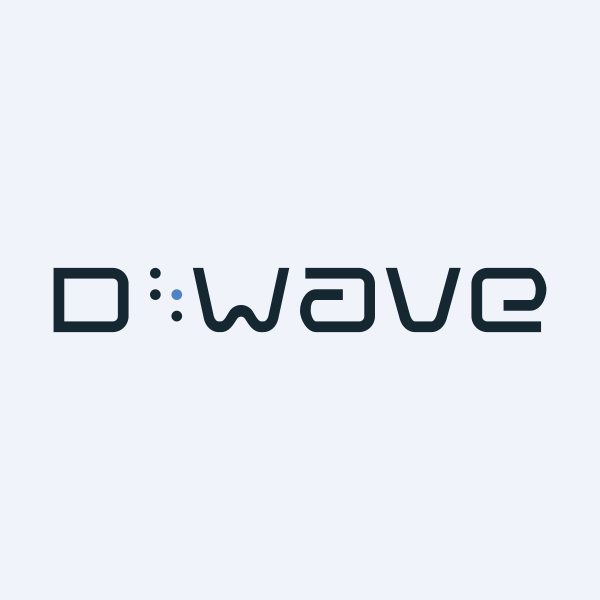D-Wave Quantum (QBTS) Stock's Monday Crash: Factors And Implications

Table of Contents
Potential Factors Contributing to the D-Wave Quantum (QBTS) Stock Crash
Several factors could have contributed to the significant drop in D-Wave Quantum (QBTS) stock on Monday. Understanding these factors is crucial for investors seeking to navigate the complexities of the quantum computing stock market.
Market Sentiment and Overall Tech Sector Downturn
The overall market climate significantly influences individual stock performance, especially within volatile sectors like quantum computing. Monday's downturn in QBTS stock may have been partly due to broader negative market sentiment.
- Negative investor sentiment towards the overall tech sector: A general bearish trend in the technology sector can drag down even promising companies like D-Wave.
- Impact of rising interest rates or inflation concerns: Macroeconomic factors such as rising interest rates and persistent inflation can impact investor risk appetite, leading to sell-offs across various sectors, including technology and quantum computing stocks.
- Correlation between QBTS and other tech stocks: QBTS stock price often correlates with the performance of other tech stocks. A general decline in the tech sector would likely negatively impact QBTS.
Company-Specific News or Announcements
Internal factors within D-Wave Quantum itself could also have contributed to the stock's decline. Any negative news or missed expectations can significantly impact investor confidence.
- Any recent financial reports (e.g., earnings, revenue): Disappointing financial results, such as lower-than-expected revenue or losses, could trigger a sell-off.
- New product announcements or delays: Delays in product launches or negative feedback on new offerings can shake investor confidence in the company's future prospects.
- Changes in management or strategic direction: Any significant changes in leadership or a shift in the company's strategic direction can create uncertainty and lead to investor apprehension.
Competition and Market Dynamics in the Quantum Computing Industry
The quantum computing industry is highly competitive, with several major players vying for market share. Advancements by competitors or shifts in market dynamics could have influenced the D-Wave Quantum (QBTS) stock price.
- Advancements from competitors like IBM, Google, or IonQ: Significant breakthroughs or announcements from competitors could negatively impact investor perception of D-Wave's competitive advantage.
- Increased investment in other quantum computing companies: A shift in investor preference towards other companies in the sector could lead to a decrease in investment in D-Wave.
- Market saturation concerns: Concerns about market saturation or slower-than-anticipated growth in the quantum computing industry could affect investor sentiment.
Implications of the D-Wave Quantum (QBTS) Stock Crash
The Monday crash in D-Wave Quantum (QBTS) stock has significant short-term and long-term implications for various stakeholders.
Short-Term Impact on Investors
The immediate impact of the stock crash is primarily felt by investors who held QBTS shares.
- Immediate financial losses for shareholders: Investors experienced significant financial losses due to the sudden drop in the stock price.
- Impact on trading volume: The crash likely led to increased trading volume as investors reacted to the news.
- Short-selling activity: The price decline might have spurred short-selling activity, further exacerbating the downward pressure on QBTS.
Long-Term Implications for D-Wave Quantum
The long-term consequences of the stock crash for D-Wave Quantum are potentially far-reaching.
- Impact on future funding rounds: A significant drop in stock price can make it more challenging for D-Wave to secure future funding rounds.
- Ability to attract and retain top talent: The stock crash could negatively impact the company's ability to attract and retain highly skilled employees.
- Long-term strategic implications: The company may need to reassess its strategic direction and operational plans in light of the stock's performance.
Implications for the Quantum Computing Industry as a Whole
The QBTS crash raises questions about the overall health and future prospects of the quantum computing industry.
- Market correction or industry-specific concerns?: The downturn could be a market correction or indicate broader concerns about the viability of the quantum computing market.
- Impact on overall investor confidence in quantum computing: The crash might negatively impact investor confidence in other quantum computing companies.
- Potential changes in investment strategies: Investors might adjust their investment strategies in response to the QBTS crash, potentially leading to increased caution or a reassessment of risk tolerance within the quantum computing sector.
Conclusion
The significant drop in D-Wave Quantum (QBTS) stock on Monday resulted from a combination of factors, including negative market sentiment, potential company-specific news, and the competitive dynamics within the quantum computing industry. The short-term implications include immediate investor losses and increased market volatility. Long-term, D-Wave Quantum may face challenges in securing funding and retaining talent. The impact on the broader quantum computing industry remains to be seen, but the QBTS crash highlights the risks and volatility inherent in this emerging technology sector. Understanding the nuances of the D-Wave Quantum (QBTS) stock crash and its implications requires ongoing vigilance. Keep an eye on QBTS stock performance and remain informed about developments in the dynamic quantum computing market to make informed investment decisions related to D-Wave Quantum stock and other quantum computing investments.

Featured Posts
-
 Immigration Fraud Accusations Lead To Us Ban For Miami Hedge Fund Manager
May 20, 2025
Immigration Fraud Accusations Lead To Us Ban For Miami Hedge Fund Manager
May 20, 2025 -
 Bundesliga Mainzs Dramatic Turnaround Against Rb Leipzig Thanks To Burkardt And Amiri
May 20, 2025
Bundesliga Mainzs Dramatic Turnaround Against Rb Leipzig Thanks To Burkardt And Amiri
May 20, 2025 -
 Understanding Thursdays Decline In D Wave Quantum Qbts Stock Price
May 20, 2025
Understanding Thursdays Decline In D Wave Quantum Qbts Stock Price
May 20, 2025 -
 The Wayne Gretzky Loyalty Debate Navigating Politics Tariffs And Canadian Identity
May 20, 2025
The Wayne Gretzky Loyalty Debate Navigating Politics Tariffs And Canadian Identity
May 20, 2025 -
 Analysis Of The Old North State Report May 9 2025
May 20, 2025
Analysis Of The Old North State Report May 9 2025
May 20, 2025
